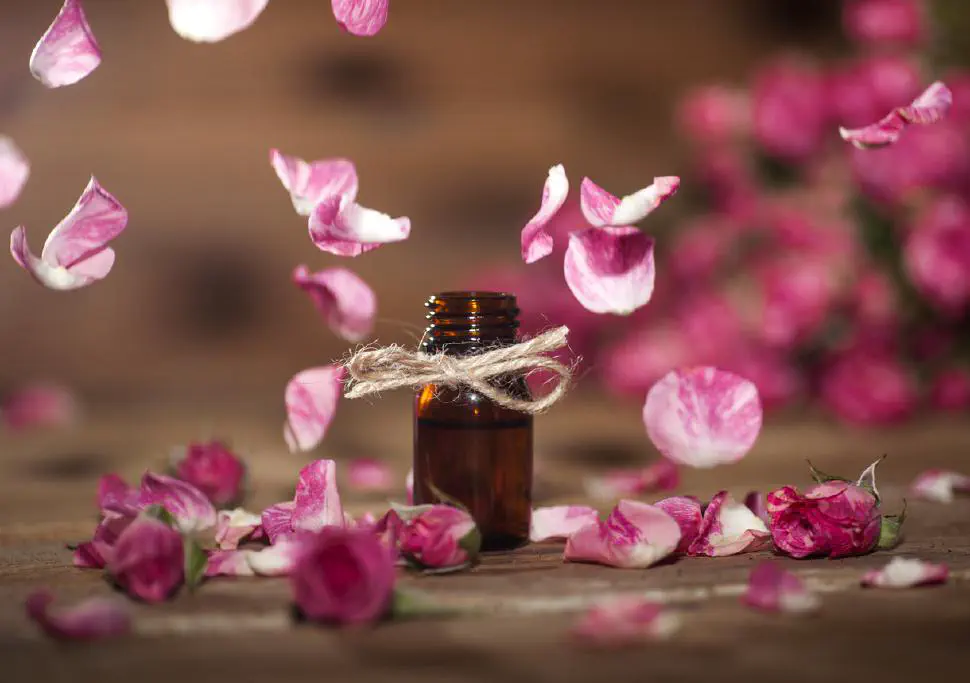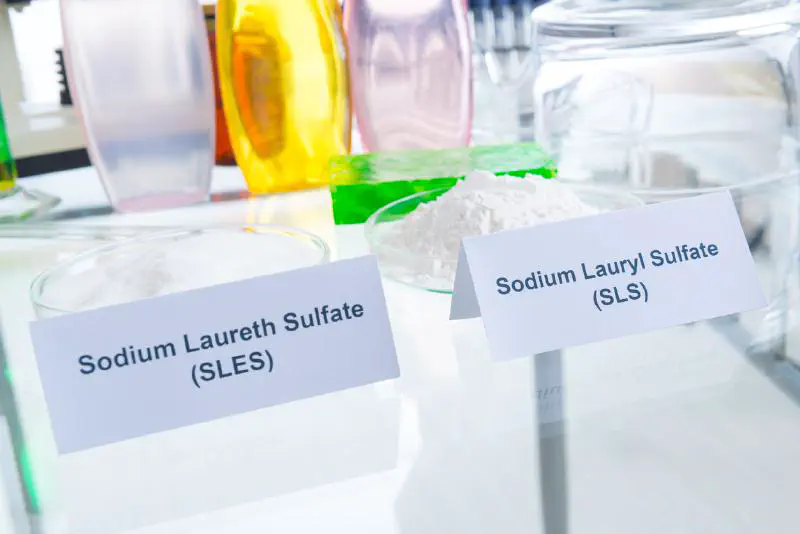What if the secret to radiant skin was hidden in a small bottle of rose water? This ancient elixir, cherished for centuries, boasts an impressive history intertwined with beauty rituals across cultures. With its delicate fragrance and potent properties, rose water emerges as a timeless and versatile ingredient in skincare.
Originating from traditional practices, rose water’s chemical composition lends it magical qualities that soothe, hydrate, and protect the skin. Beyond its beneficial properties, it promises to combat redness, inflammation, and acne while offering age-defying antioxidants. As more individuals seek natural and effective skincare solutions, rose water’s benefits are increasingly recognized.
This article will explore how rose water transforms your skin and extends beyond beauty to enhance mental well-being. Discover ideal skincare products, DIY treatments, and tips for integrating rose water into routines while tailoring its use for various skin types.
The Origins and Properties of Rose Water
Rose water has a rich history and remarkable properties that make it valuable in both beauty and wellness. It is crafted by steaming rose petals, mainly from the Damask Rose, to capture their essence. This process, known as distillation, not only yields rose oil but also produces rose water as a by-product. Renowned for its soothing and healing qualities, rose water is celebrated for its antioxidant and antibacterial properties. Its subtle floral scent adds a touch of luxury and relaxation to its many uses, from skincare to culinary applications.
History and Traditional Uses
Rose water, with its origins in ancient Persia over 2,000 years ago, was initially crafted for perfume and medicine. As it traveled through the Middle East, India, and Europe, it gained popularity and became a symbol of luxury. In Roman times and medieval Europe, it was an essential part of baths and cuisine. Traditionally, rose water has been a staple in skincare routines, prized for its calming and moisturizing effects. It is also used in aromatherapy, providing stress relief and enhancing emotional well-being. In various cultures, it addresses digestive issues and respiratory ailments, showcasing its versatility.
Chemical Composition and Properties
The chemical makeup of rose water is filled with benefits, thanks to its powerful antioxidants like flavonoids and phenolics. These compounds help fight oxidative stress, protecting both skin and body. Its natural anti-inflammatory agents, such as tannins, soothe redness and irritation, which is ideal for sensitive skin. The floral scent of rose water, due to compounds like geraniol and citronellol, provides relaxation and stress reduction. Moreover, its slightly acidic pH mirrors the skin’s natural barrier, aiding in balance and defense against damage. Being hydrophilic, rose water also excels in attracting and retaining moisture, locking in hydration for a refreshed and healthy appearance.
Skincare Benefits of Rose Water
Rose water is a cherished addition to skincare for its versatile benefits. Made by steam distillation of rose petals, it blends rich antioxidant and anti-inflammatory properties. This makes it a cornerstone in soothing, hydrating, and revitalizing the skin, all while maintaining its pH balance. Regular use can fend off signs of premature aging by combating oxidative stress. Rose water’s appeal extends beyond just skincare; it also offers relief from redness, balances the skin’s moisture levels, and fights acne, garnering a lasting reputation in beauty routines worldwide.
Soothing Sensitive Skin
If you have sensitive skin, rose water can be a lifesaver. Its calming properties help to soothe irritation and reduce redness. This is due to the anti-inflammatory nature of rose petals, which are high in essential vitamins. These vitamins aid in tissue regeneration. They also tighten pores, offering a gentle, non-irritating solution for sensitive skin. By incorporating rose water into your regimen, you can enjoy softer, more hydrated skin. Its natural soothing qualities help calm down inflamed areas, making it perfect for delicate skin types.
Reducing Redness and Inflammation
Rose water can be a simple fix for redness and skin irritation. Abundant with tannins, rose water’s anti-inflammatory agents are excellent for calming inflamed or red skin. Its slightly acidic pH level helps balance the skin and curbs irritation. Components like terpenes and glycosides fight inflammation, making it ideal for acne-prone skin. Bioactive compounds in rose water target irritants effectively, even in cases of sun exposure. As a result, regular use of rose water helps maintain calm and balanced skin, reducing the appearance of redness significantly.
Hydration and Moisturizing Effects
Revitalize your skin with the hydrating properties of rose water. Known for its high water content, rose water is a natural moisturizer. It keeps skin supple by maintaining moisture levels and prevents dryness. The sugars and oils in rose water help lock in moisture, keeping your skin smooth and plump. When used regularly, rose water restores fluids to dry skin, giving it a glowing, healthy appearance. This deep hydration is key in combating skin conditions that arise from dryness, offering a refreshed and hydrated complexion.
Antioxidant Properties and Anti-Aging Benefits
Rose water is rich in antioxidants like flavonoids, polyphenols, and Vitamin C. These compounds help neutralize free radicals that contribute to skin aging. By combating oxidative stress caused by pollution and UV rays, rose water helps prevent cell damage. The anti-inflammatory nature of rose water also contributes to its anti-aging benefits. Regular use can help minimize signs of aging, such as fine lines and wrinkles, maintaining skin elasticity and radiance. This longstanding remedy offers both protective and rejuvenating benefits for skin longevity.
Natural Antimicrobial Effects for Acne Relief
Battling acne-prone skin? Rose water’s antimicrobial properties can be your answer. Its essential oils contain components like geraniol and eugenol, known for their ability to fight bacteria. Terpenes and glycosides further reduce inflammation, minimizing acne’s impact. Regular cleansing with rose water can clear pores and inhibit bacterial growth, reducing breakouts and redness. Its gentle touch is not harsh on the skin but effective enough to help prevent acne, making it a valuable asset in acne management routines.
Beyond Skincare: Holistic Benefits of Rose Water
Rose water has long been celebrated for its versatility in beauty and skincare. However, its benefits stretch far beyond the skin’s surface. Known for its ability to lower stress and anxiety, rose water has become a staple in mental and emotional wellness practices. Its soothing floral aroma is often used to promote relaxation and improve one’s mood. In Ayurvedic medicine, rose water is cherished for balancing emotions and uplifting mental health. Its anti-inflammatory properties not only soothe skin conditions like acne and eczema but also aid overall well-being. Packed with antioxidants, rose water combats oxidative stress, supporting both emotional and physical health.
Calming and Stress-Reducing Effects
Rose water offers more than just a pleasant scent. Its fragrance can calm the mind, helping to reduce stress and ease stress-related skin flare-ups. The scent uplifts the mood, easing anxiety and creating a sense of peace. Inhaling rose water’s aroma can also improve sleep quality due to its natural sedative properties. By enhancing the release of serotonin and dopamine, chemicals linked to happiness, rose water promotes relaxation. Furthermore, a light mist of rose water can help relieve headaches by easing tension and relaxing muscles, making it a natural remedy for stress relief.
Enhancing Mental Well-being with Aromatherapy
Aromatherapy with rose water is an effective way to support mental health. The calming aroma of rose water has been used for years to relax the mind and relieve stress. Breathing in its subtle fragrance can significantly reduce tension and soothe stress-related physical symptoms. This gentle scent encourages the brain to release serotonin and dopamine, enhancing feelings of happiness and relaxation. Incorporating rose water into aromatherapy can elevate one’s mood by easing anxiety and promoting emotional balance. Additionally, its soothing aroma is known to alleviate tension headaches, offering a simple yet effective way to relax both the mind and body.
Using Rose Water in Your Skincare Routine
Rose water, derived from distilling rose petals, is a cherished addition to many skincare routines. Known for its soothing and hydrating properties, it acts as a gentle toner by minimizing pores and refreshing your complexion. It is particularly beneficial for sensitive or dry skin due to its ability to moisturize and calm irritation, keeping the skin smooth and radiant. Rich in antioxidants, rose water helps balance the skin’s pH levels and protects against oxidative stress from factors like aging and sun exposure. Incorporating it can also aid in preventing wrinkles, fine lines, and other signs of aging, ensuring a youthful glow. Additionally, the anti-inflammatory traits of rose water make it a useful remedy for skin conditions such as acne, rosacea, and eczema, enhancing the skin’s overall health and luster.
Ideal Skincare Products Featuring Rose Water
Rose water is a prized ingredient in many skincare products, especially those targeting sensitive and dry skin. When considering a product, ensure the rose water used is clear and pure, not cloudy or gel-like, to retain its effectiveness. The subtle yet enchanting scent adds to the appeal of products, especially in K-beauty lines. Its soothing nature helps alleviate redness and maintains the skin’s pH balance, making it a gentle addition to any routine. Moreover, its natural cleansing qualities tackle harmful bacteria, reducing breakouts. By enhancing hydration, rose water is suitable for most skin types and ensures the skin remains plump and nourished.
DIY Rose Water Treatments for Home Use
Creating your own rose water at home can be a rewarding process and allows you to control its purity. A simple method involves gently washing organic rose petals and simmering them with distilled water in a pot. This process ensures a rich, chemical-free rose water that is perfect for skincare, culinary delights, or wellness applications. Homemade rose water should be refrigerated and used within a week to maintain freshness. The versatility of rose water shines in DIY treatments, as it functions as both a facial cleanser and toner. Additionally, its use in cooking recipes can add a fragrant twist to your culinary creations, expanding its utility beyond just skincare.
Tips for Incorporating Rose Water into Daily Routines
Integrating rose water into your daily routine can enhance your skincare regimen effortlessly. After cleansing, apply rose water with a cotton pad across your face and neck to tone and refresh your skin. To boost hydration and reduce irritation, mix a few drops of rose water into your favorite moisturizer or serum. This practice can help mitigate wrinkles, age spots, and minimize pores, leaving your skin plumped and hydrated. With its gentle nature, rose water suits most skin types, acting as a soothing toner. However, before adding it to your routine, conduct a patch test to rule out any allergic reactions, ensuring a pleasant experience with this floral treasure.
Suitability for Different Skin Types
Rose water is a versatile and gentle skincare product suitable for all skin types. It is particularly favored for its soothing and hydrating qualities, making it ideal for sensitive, acne-prone, and dry skin. The antioxidants and vitamins in rose petals support skin regeneration and pore tightening. This enhances its adaptability for various skin concerns. While it is generally well-tolerated, some individuals may experience allergic reactions like redness or irritation. The anti-inflammatory properties of rose water reduce redness and calm the skin, making it beneficial for sensitive skin types.
Sensitive Skin Considerations
Sensitive skin can benefit significantly from the use of rose water. Its hydrating and calming effects make it suitable for even the most delicate skin types. The anti-inflammatory properties help reduce redness and provide relief for conditions like eczema and rosacea. Packed with natural antioxidants, rose water protects sensitive skin from damage and irritation caused by external factors. Incorporating rose water into a skincare routine helps maintain the skin’s pH balance. It reduces excess oil without drying, which is advantageous for sensitive skin. The gentle nature of rose water makes it a versatile option, providing moisture and reducing the appearance of irritation.
Rose Water for Oily and Acne-Prone Skin
For those with oily or acne-prone skin, rose water offers several benefits. Its anti-inflammatory properties help reduce acne-related redness and soothe irritated skin. The antimicrobial effects of essential oils in rose water support acne healing by fighting off bacteria. Antibacterial compounds like geraniol and eugenol prevent bacterial growth, which often causes acne. Acting as a natural cleanser, rose water removes dirt and excess oil from the skin, helping to prevent future breakouts. The pH-balancing ability of rose water controls excess oil production, making it especially beneficial for oily skin.
Benefits for Dry and Mature Skin
Dry and mature skin can greatly benefit from rose water’s hydrating properties. As a natural toner, it effectively maintains skin moisture. Its anti-inflammatory properties combat irritation and redness, common in mature and sensitive skin types. By balancing pH levels, rose water restores healthy moisture in the skin. With regular use, rose water enhances skin elasticity due to its soothing and hydrating properties, contributing to a more youthful appearance. The antioxidants in rose water fight free radicals, rejuvenating skin cells and providing a brighter complexion for mature skin.
Conclusion: Rose Water as a Skincare Staple
Rose water, derived from distilling rose petals, offers a wide array of benefits for both skin and overall health. With its antioxidant properties, it soothes skin irritations like acne, rosacea, and eczema. As a natural toner, rose water balances the skin’s pH levels and hydrates dry areas, while also controlling excess oil. This pH balancing promotes a radiant glow and supports skin elasticity, helping to prevent fine lines and sagging.
Key Benefits of Rose Water:
- Soothes Irritation: Calms conditions such as acne and rosacea.
- Hydrates and Tones: Maintains pH balance and controls oil.
- Anti-Aging Properties: Prevents fine lines and sagging.
- Sun Protection: Guards against oxidative stress from sun exposure.
Drinking rose water is just as beneficial, supporting digestion and enhancing skin health from the inside. Regular use revitalizes the skin and enhances its overall appearance and health. Whether applied topically or consumed, rose water serves as a versatile skincare staple, making it an essential part of modern skincare routines. Embrace this natural remedy to achieve brighter, healthier skin.




